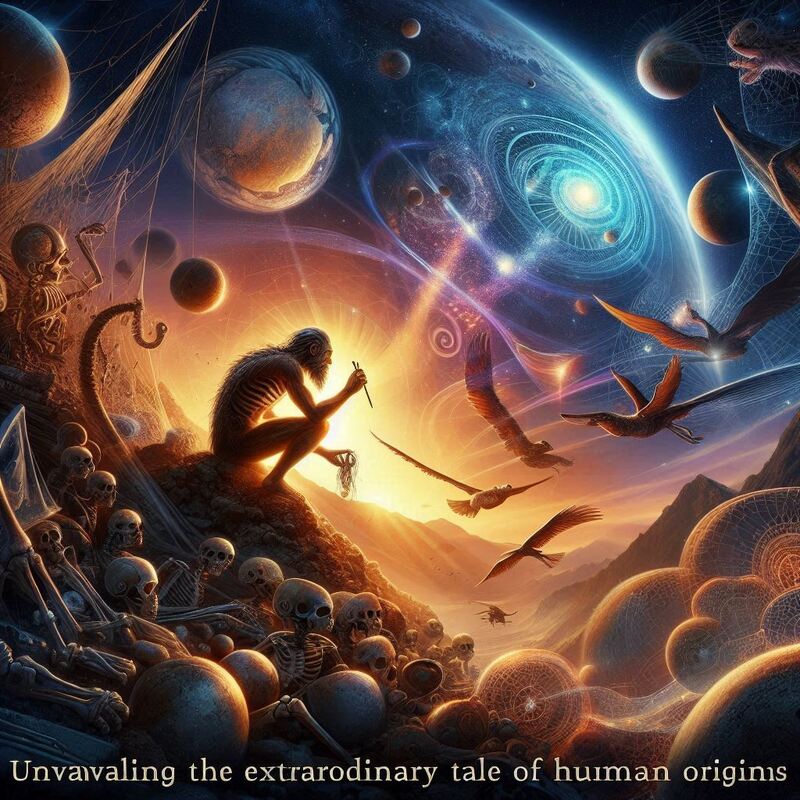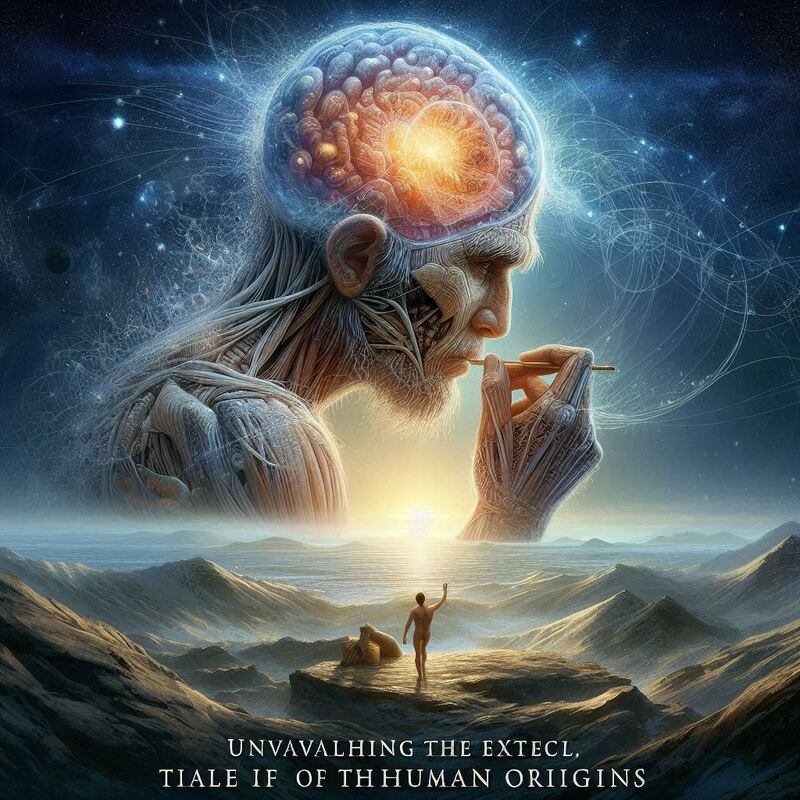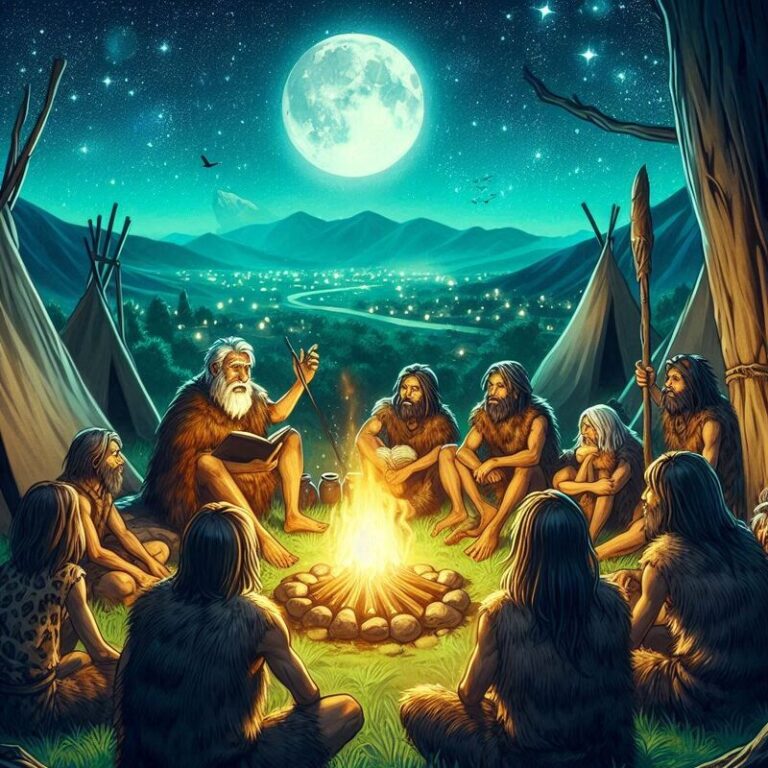Anthropogony
Anthropogony
Anthropogony: Unraveling the Extraordinary Tale of Human Origins
In the annals of Earth’s history, few stories are as captivating and complex as the origin and evolution of humanity. Anthropogony, the study of human origins, weaves together strands of biology, anthropology, archaeology, genetics, and paleoanthropology to unlock the mysteries of our shared heritage. From the ancient savannas of Africa to the far reaches of the modern world, the journey of Homo sapiens is a testament to resilience, adaptability, and the boundless curiosity of the human spirit.
The African Crucible: Our Story Begins
The saga of human origins unfolds against the backdrop of the African continent, where the earliest chapters of our evolutionary history were written. It was here, amidst the sprawling savannas and dense forests, that our ancestors took their first tentative steps on two legs. Australopithecus afarensis, best known for the iconic fossil “Lucy,” roamed the landscape over three million years ago, offering tantalizing glimpses into our distant past.
Anthropogony

As millennia passed, the evolutionary landscape shifted, giving rise to new hominin species such as Homo habilis and Homo erectus. These early toolmakers and hunters adapted to changing environments, honing their survival skills and laying the groundwork for the emergence of Homo sapiens. The African crucible provided fertile ground for the evolution of our species, fostering innovation, cooperation, and cultural exchange.
Genetic Clues: Tracing Our Ancestral Roots
Advances in genetics have revolutionized our understanding of human origins, offering new insights into the deep connections that bind us to our ancient ancestors. Through the study of mitochondrial DNA and Y-chromosomal haplogroups, scientists have traced the matrilineal and patrilineal lineages of modern humans back to their African origins. Genetic analyses also reveal the intricate web of interbreeding and migration that characterized human evolution, with ancient DNA providing glimpses into the lives of long-extinct hominin species such as the Neanderthals and Denisovans.
The Out of Africa Hypothesis: A Journey Across Continents
Central to our understanding of human origins is the Out of Africa hypothesis, which posits that Homo sapiens originated in Africa before dispersing across the globe. Archaeological evidence supports this theory, with fossil finds and stone tools dating back hundreds of thousands of years attesting to early human presence on the African continent. Over time, successive waves of migration carried our ancestors into Eurasia, Oceania, and the Americas, where they adapted to diverse environments and climates.
Cultural Evolution: The Rise of Homo sapiens
While genetic factors provide crucial insights into our evolutionary past, the story of human origins is incomplete without considering the role of culture. From the earliest stone tools crafted by Homo erectus to the intricate cave paintings of our Paleolithic ancestors, humans have long demonstrated a capacity for creativity, innovation, and symbolic expression. The development of language, art, and social norms fueled the expansion of human societies, enabling us to thrive in environments ranging from tropical rainforests to arctic tundra.
The Cognitive Revolution: A Leap in Human Evolution
Anthropogony
At the heart of human evolution lies the cognitive revolution, a pivotal moment in our history marked by the emergence of complex thought and symbolic communication. Scholars such as Yuval Noah Harari argue that the ability to create shared narratives and imagined realities gave Homo sapiens a unique evolutionary advantage, facilitating cooperation, collective learning, and cultural transmission. This cognitive leap laid the foundation for the development of agriculture, urbanization, and the rise of complex civilizations.
Anthropogony
Contemporary Perspectives: Exploring the Depths of Human Origins
In the modern era, the study of human origins continues to captivate the imaginations of scientists, scholars, and the general public alike. Advances in fields such as paleoanthropology, archaeology, and genetics offer new avenues for exploration, challenging long-held assumptions and shedding light on previously obscured aspects of our evolutionary past. Moreover, the ongoing dialogue between science, religion, and indigenous knowledge systems enriches our understanding of what it means to be human in an ever-changing world.
Conclusion: Celebrating Our Shared Heritage
Anthropogony is more than a scientific pursuit; it is a journey of discovery that connects us to our shared past and illuminates the possibilities of our future. As we unravel the extraordinary tale of human origins, we gain a deeper appreciation for the resilience, adaptability, and ingenuity of our species. By embracing our shared heritage and celebrating the diversity of human experience, we honor the countless generations who came before us and pave the way for generations yet to come. In the tapestry of human history, Anthropogony is a thread that binds us all together, reminding us of the remarkable journey we share as inhabitants of this planet called Earth.



